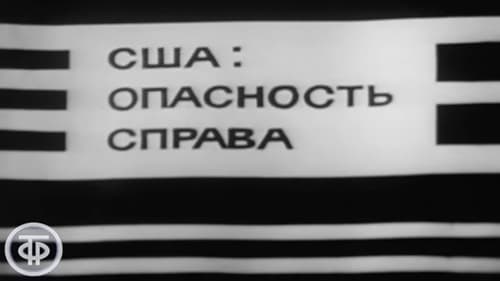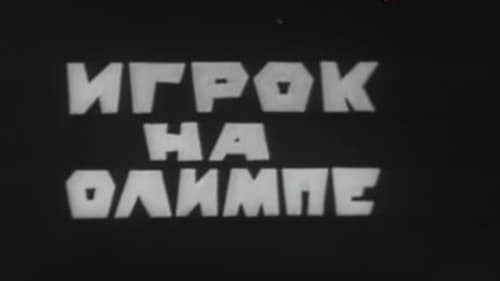
Anatoliy Semyonov
출생 : 1940-01-01, Moscow, RSFSR, USSR
약력
In 1964 he graduated from the Shchukin VTU. From 1964 to 1967 he worked in theaters in Volgograd and Moscow, acted in films. In 1969 he graduated from the Higher Courses for Creative Workers of Television and Radio of the USSR State Radio and Television. In 1969-1977. - Director of the International Department of the Group of Political Observers of the Main Information Board of the Central Television of the USSR. Created series of programs: "International Panorama", "9th Studio", documentaries "Contradictory America", "America of the Seventies", "Masters without Masks". In 1977-1988. - the author and director of social and political programs and television films of the Main editorial office of propaganda of the Central Television of the USSR. In 1988-1991. - Author and director of materials and television films for the Main Editorial Office of popular science and educational programs of the Central Television. In 1991-1995. - Author and director of artistic programs, performances and concerts of the All-Russian State Television and Radio Broadcasting Company (VGTRK), the creative association "Open World". Director of 11 TV films of the documentary series Masterpieces from the Provinces. In 1995-1999. - Chief director of the television studio, author of the materials for the cycle of programs "Screen of criminal messages" of the United edition of the Ministry of Internal Affairs of the Russian Federation. In 1999-2001. - Chief Director of the Information Broadcasting Directorate of the Prometey-AST Satellite TV channel. In 2001, he worked on television films under contracts with film companies. In 2003-2005. - Editor of the documentary film department of OJSC Telefilm Film Company. In 2004-2007. - Senior Lecturer at the Department of Television Journalism and Film Directing of the Second Higher Education of the Litovchin Humanitarian Institute of Television and Radio Broadcasting (GITR). Since 2007 - a lecturer of the course "Directing and Editing" at the Ostankino Institute of Television and Radio Broadcasting. Since 2008 - a member of the International Academy of Television and Radio. Honored Artist of Russia (2010).

Director
In this episode of the series "America of the Seventies," political commentator Valentin Zorin travels through one of the most famous and visited cities in the United States, the "pearl of the West Coast" - San Francisco. Many centuries ago, the inhabitants of ancient Hellas said that the one who was not in Athens was a blockhead, and the one who visited there and did not admire the city was a donkey, and the one who voluntarily left it was a camel. This is how Americans feel about San Francisco. Indeed, the city is very beautiful, steeply descending to the coast of the Pacific Ocean, it makes you admire yourself...

Director
Boston. In those distant times, when virgin forests were still rustling on the site of today's Washington, when proud and free Indians gathered at the wigwams, on the site of which New York and Chicago, Atlanta and San Francisco are now piled, a settlement already existed here on the Atlantic coast of America. called by the people who founded it - Boston.

Director
In the next episode of the series "America of the Seventies" political observer Valentin Zorin travels through the most "European" city in the USA, the capital of jazz - New Orleans. Throughout the country from the northern borders to the Gulf of Mexico, the mighty Mississippi carries its waters - a river toiler, a river that feeds many generations of Americans who have lived and now live on its banks. At its mouth, at the confluence with the Gulf of Mexico, is New Orleans. However, this New Orleans is not so new. In the past, the center of the possessions of the French kings in a new light, and now the largest city, port in the south of the United States.

Director
New York is the largest city in the modern world. In greater New York, together with the suburbs, in the 1970s, sixteen million people live, and in the city itself there are about ten million. Americans speak differently about New York - some argue that New York is not America, others, on the contrary, are convinced that this is the most American of all American cities. Apparently both are right...

Director
Walk through one of the oldest cities in the United States - Philadelphia. "The City of Brotherly Love" or - Philly, as the Americans affectionately call it, is proud of its historical sights, because it was here that the Declaration of Independence and the US Constitution were signed.

Director
In the next episode of the series "America of the Seventies," political commentator Valentin Zorin talks about the capital of the United States of America - Washington. There are bigger and more beautiful rivers in America, if not the Potomac River meandering among the plains of the Atlantic coast of the country, but for many reasons: geographical, economic and political order, at the end of the 18th century, it is here, at the junction of the industrial north and the plantation south, not far from places where the waters of the Potomac disappear without a trace in the vast bulk of the Atlantic, a city named after George Washington was founded.

Director

Director
In the second film, the author tells about the struggle of blacks for the right to feel equal with all US citizens. Commentary of the mayor of Cairo, one of the cities in the American South, about the suppression of the rebels, about the most brutal methods of fighting African American protesters. Jesse Jackson's speech. Jesse Jackson's commentary on the Black Rights Organization. Comments by female residents of Jackson, the capital of Mississippi, on the degree of mental development of whites and blacks. A story about the Ku Klux Klan, about Robert Shelton - the head of the Ku Klux Klan. Speech by American singer and dramatic actor Paul Robson, his commentary. Shots of the Olympics, victories in the competition of black athletes. About reprisals against Negro organizations. The widow of the American writer Ernest Hemingway Mary and the American scientist Henry Winston speak out about support for African Americans and the fight against racism.

Director
Chicago. In the first part of the film, the author tries to answer the question: "Did the African Americans who traveled to the north, including to Chicago, succeed in finding human conditions of existence and human rights?" To the song of the American blues musician George "Buddy" Guy, the streets of the American metropolis of Chicago, black residents are shown. Dick Gregory, one of the best actors in America of the time, commenting on the conditions of life for blacks when they first moved to Chicago. Comments by African American Families on Current Conditions. Video footage of a huge Negro ghetto. Directed by Anatoly Semyonov. 1973 year.

Director
The USA is not only about skyscrapers and highways, street bustle, and car herds. America is fields and forests, deep rivers and endless expanses, hot south and snow-covered north, high mountains and vast valleys where ordinary Americans live, work, suffer and rejoice.

Director
Essay by political observer Valentin Zorin, impressions of his visit to the United States, the course of the election campaign. New trends in US politics and public sentiment. Interviews in English with US officials on American policy, new trends, and improving relations with the USSR. Political debate. Promises, plans of politicians. Nuclear policy. Disarmament issues. Presidential candidate programs. 1972 year.

Director
Professor Valentin Zorin, political observer of the USSR State Television and Radio Broadcasting, talks about Joseph McCarthy, an American politician, a senator from Wisconsin, who held an extremely anti-communist position, who advocated an intensification of the Cold War with the USSR. The name of McCarthy is associated with a reactionary trend in the political life of the United States of the early 1950s, dubbed "McCarthyism" and consisted in the persecution of people only suspected of sympathizing with communism and not committing any crimes.

Director

Director

Director

Director

Director
















